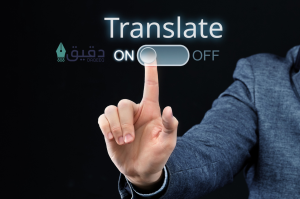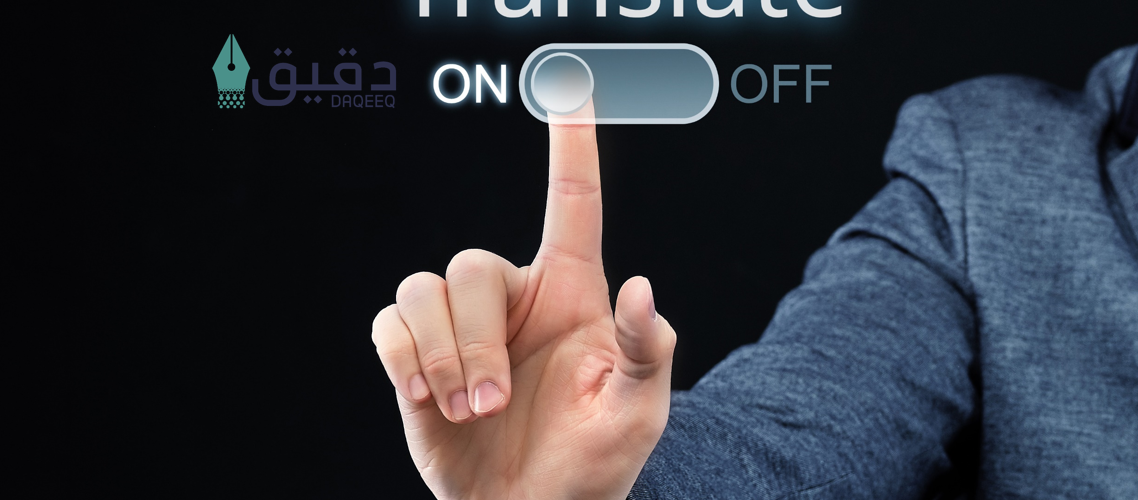Category: Translation Written by: Daqeeq Date: 17 Jan 2021
Future of Translators:
Why Will the Human Element Still Count?
Machines and AI have created several benefits, and made our lives simpler by ensuring us access to information on-the-go and instantly.

One of the serious effects of AI is that it has begun to replace workers in several jobs, particularly low-skill jobs which can be automated, or involve some repeated tasks, such as cashiers and welding in assembly lines.
The translation technologies have as well developed rapidly in the last few decades, and that is causing upheavals in the industry as a whole, but where it stands now, human translations are still far superior to machine translations. The question is: Will that always be so? And why will the human element still count in the translation field?
Machine Translations are Catching Up to Speed Fast
It’s impossible to expect at this point in time what level of quality may be achieved by the machine translations in the short-term future. As we can see at the moment, machine translation can produce texts that are readable, and sometimes even understandable. But even that is built upon the human translation talents and abilities, and that is shown especially with the developers streamline computers’ abilities who are able to draw on databases of human translations, and there may be a point where machine translations will become flawless in the future.
But… another key question is…
What are the Skills Humans Have That Machines Never Will?
We first have to admit that “flawless,” does not always encapsulate what we are looking for in translation. And we can see this mostly in the translation of the poetry, where the message of it is not carried only in the literal meaning but also in the allusions, connotations, and rhythm of it. What translators actually do in such cases they rewrite this piece of poetry in another language rather than giving the literal translation of it, where metaphor might not give any meaning if it was translated literally. This kind of accurate understanding needs a lot of sentience, and definitely, this is something humans have and computers will never have.
In addition to this point, we can know that computers will never be trained to realize the cultural differences and potential misunderstandings. Even if the text was perfectly written with flawless language and perfect grammar but this text needs to take the sensibilities and nuances of the reader’s culture into consideration. And it is impossible to create an algorithm that will differentiate between the cultural nuances of every individual.
It is not only machine translation the type of translation technology that has been developing in recent years. A lot of computerized translation tools have become available to help translators work faster, more effectively, and more thoroughly. But it is definitely the most effective and efficient model of translation in our time. Even if some companies might use machine translation, they must hire humans to review this before using the content.
Nowadays, translators are using a variety of assistive software, as well as modern technologies to offer their talents. The golden standard of translation is AI and computer-assisted human translation.
So, apparently, this is the answer and that’s why human translators will always still count and machines cannot be replaced.
What we really need to know is that translation is not only about the words; translation is a soul transformed from one language to another. And translators are required to be the first to embrace new technology while adapting business models to the new realities.
“We guarantee you the highest quality standards, as we work in accordance with ISO 17100 standards. Our team provides human translation services enhanced with artificial intelligence. Check out a sample of our professional translation solutions in action with our Arabic version of this article.”


No comments yet.